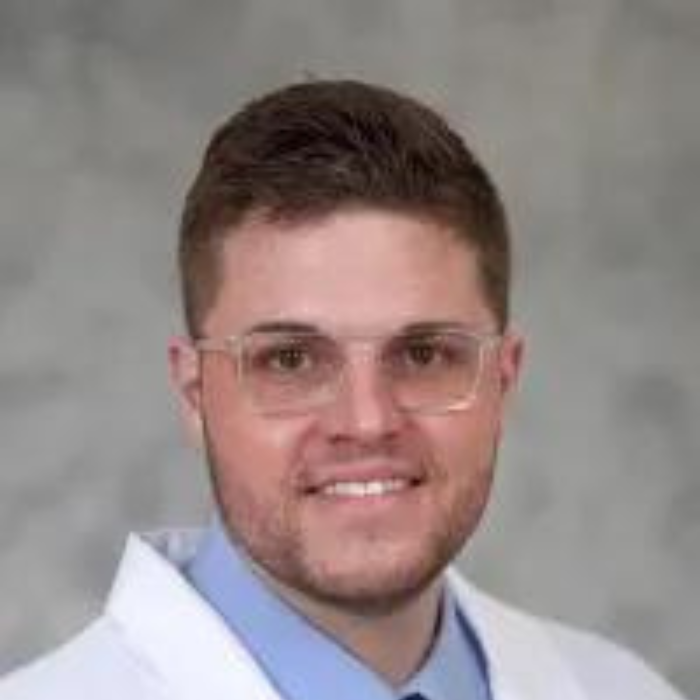
Matthew Bentz, OMS II
2023 Namey/Burnett Preventive Medicine Writing Award Submission
Sponsored by the ACOFP Foundation, with winners selected by the ACOFP Health & Wellness Committee, the Namey/Burnett Preventive Medicine Writing Award honors the memory of Joseph J. Namey, DO, FACOFP, and John H. Burnett, DO, FACOFP—dedicated advocates for osteopathic medicine—and recognizes the best preventive medicine blog posts submitted by osteopathic family medicine students and residents.
LEARNING HOW TO BUILD HOPE IN WARDS: CRISIS TEXT LINE
Every day, thousands of people in the United States encounter conditions that are beyond their personal capacity to cope. No, these are not medical emergencies, but they can often be as emotionally demanding or even as physically dangerous. Circumstances, emotions, health difficulties, politics, bullying, abuse, or LGBTQ harassment may all be contributors. Some situations may even prompt someone to consider self-harm or ending their life. Many of these individuals are suffering in silence, but a growing number of them have begun finding help from a diverse group of strangers across the nation by contacting Crisis Text Line. Crisis Text Line is a national text-based mental health support service that connects individuals in crisis with trained volunteer counselors in English and Spanish. As healthcare professionals, we must appreciate that mental health is a major component of overall well-being, and we should all look for unique ways to develop our own capacity to assist in this aspect of healthcare. Learning how words of compassion and understanding could help those in medical wards heal is an important part of the equation.
I am frequently inspired by brave people whose words reveal the pain associated with mental health. Their stories speak to the power of communication, and how we can use it to create a sense of community and connection with those who are struggling. I've personally struggled with mental health concerns for much of my life, which stem from a catastrophic weather occurrence and the death of a loved one when I was a teenager. After going through this personal journey, I became conscious of others who were experiencing something similar and needed someone to accept them and their stories.
I began to seek out ways to enable myself to support others who were going through similar emotions. I focused on things such as involvement in residence life, projects and programs at school, and training as an incoming medical student to recognize emotional well-being. I wanted to be able to understand, sympathize with, and provide a listening ear to those who were in need. I was grateful to my institutions for making mental health a topic of discussion, however, with only an hour or two of training in each of these different scenarios, I felt entirely unprepared. I was concerned at the prospect of facing more serious mental health circumstances such as abuse, bullying, rape, self-harm, or suicidal feelings. I didn't believe my knowledge could readily assist people in this form of distress. I realized that the only way to truly be a resource was to learn more in-depth information about these issues and really equip myself with the right skills.
By the beginning of my third year of medical school, I had come to the conclusion that I needed more practice assisting patients in managing a range of situations and feelings. I explored a volunteer position with Crisis Text Line, where I could learn how to work with texters suffering from mental health issues. I felt that training as a Crisis Counselor would provide me with the additional foundation I needed and wanted for my future career. So, I decided to apply and began a detailed 30-hour training program designed to teach volunteers how to support people in crises. In this training program, I gained an understanding of how to recognize warning signs in someone’s mental health and the importance of creating a safe and comfortable environment for people in crisis. I learned to engage individuals in a supportive and non-judgmental way while also identifying and responding to emergency situations. The best part about the training and process was learning that volunteers are not allowed to provide medical advice, regardless of their professional training. This meant I had to learn a unique way of helping people that differed entirely from my experiences in rotations. I needed to develop a method of helping that centered only on compassionate communication and empathy.
During an early shift as a Crisis Counselor, I had an eye-opening experience! I had gone through the training and done countless mock conversations, but this text was from a real person. I had just received a message from someone who was considering ending their life. I knew I needed to help them move from a state of impulsivity to a state of cool calm. The first step was to calmly acknowledge their feelings and understand why they were feeling that way. You will learn through training that by working through the five stages of a conversation, you can help most texters gain clarity in their situation and develop solutions that work best for them. As a counselor, you allow the texter to steer the conversation; the texter will create a plan for safety, identify strategies that may work for them, and agree to the resources they hope to utilize to feel better. I recently had a conversation with a young teen in a primary care clinic who was having thoughts of ending his life, and I stated, "I hear you, and I can't imagine what that must feel like." "Please know you matter, and you deserve to be here." Prior to my training with Crisis Text Line, I would have medicalized the conversation with him rather than humanizing it.
With this in mind, it is important to realize that your role as a counselor is not to give your advice or tell the texter what to do. You are not there to prescribe things or provide enlightening diagnostics; you are there to empower other people to feel heard and to make the best decisions for themselves. Your job is to provide support and guidance, ask clarifying questions, listen actively, and help the texter process the situation in a way that helps them understand how to best move forward. By allowing the texter to be in charge of their own decision-making process, you can provide a space for them to find their own voice and to be confident in taking ownership of their choices. This is what you will learn to do in training, but as was the case in the texting conversation above, I leaned heavily on my platform supervisor to ensure I was providing the best support to my first suicidal texter. The next day within the platform, I received a message of thanks and support from that texter through the feedback function. The words of thanks, and how our conversation altered that moment in their life, will always remind me of the impact we can have on someone's life by simply being present, listening, and offering non-judgmental support.
Crisis Text Line is a fantastic way to volunteer and help others while attending medical school. An important aspect for students is that they allow you to use their web-based texting platform to help people in crisis within timeframes that work with your schedule. There is a constant need for counselors, and they invest heavily in the network and training, so all they ask is that you provide a minimum of four hours of service each week over your first year. The service is a 24/7 crisis hotline, and it is also the only text-based service that accepts conversations through the new 988 national suicide hotline. With the constant need for volunteers on the platform, you are able to create a schedule that accommodates your medical education. Even in my short time as a volunteer, I have had the types of meaningful and rewarding conversations that I felt I lacked prior to practicing medicine full-time.
Volunteering at Crisis Text Line has provided me with the insight and confidence necessary to handle the challenging conversations and situations I was once overwhelmed by. It has also provided me with a sense of purpose and the satisfaction of knowing that I am making a difference in the lives of others, one texter at a time. I believe that the style and nature of compassionate communication employed in crisis intervention are unmatched, and that by participating in these discussions as medical professionals, we can improve the language and environment of healthcare in hospitals. As a medical student, I believe direct exposure through crisis intervention and advocacy is advantageous for future physicians. I also feel crisis intervention work may help physicians become more conscious of their emotional health and enable kindness with coworkers and staff. Serving on the Crisis Text Line volunteer team has allowed me to acquire patient advocacy knowledge and human-to-human empathy training that I would not have received otherwise. My hope is that by encouraging participation in such initiatives, our generation of doctors can enable words of compassion and understanding to begin to wander through our wards.
If you'd like to learn more about volunteering with Crisis Text Line, visit their website. I urge you to consider applying to volunteer and empower yourself for the daily conversations about mental health we are all sure to face in our future careers.





Leave a commentOrder by
Newest on top Oldest on top